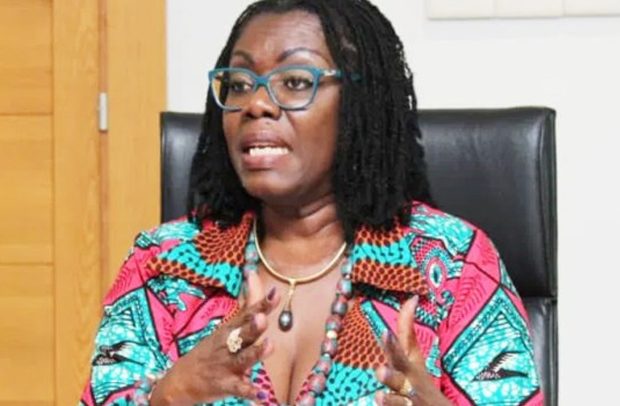Ursula Owusu-Ekuful
PEOPLE WHO cumulatively send GH¢3,000 in a month will not be taxed, Minister of Communications and Digitalisation, Ursula Owusu-Ekuful, has stated.
The Ablekuma West MP was reacting to protests from a section of the Ghanaian populace against Government’s announcement of a 1.75 percent tax on MoMo transactions above GH¢100, among others.
A section of Ghanaians including the Minority in Parliament have kicked against this newly introduced electronic levy.
The protesters have indicated the move will worsen the hardships of Ghanaians.
“If you have more than a ¢100 to send a day, then you’re not poor…So if you really are poor and you are in a position to send GH¢100 a day, then we need to re-classify our definition of who really the beneficiaries of these are. And it is only the sender who pays, not the recipient. Unlike the telcos where both the sender and receiver pay,” she said the media Thursday.
Finance Minister Ken Ofori-Atta on Wednesday announced that government was looking to introduce innovative ways of mobilising revenue after it scrapped the payment of road tolls.
Ms Owusu-Ekuful said the new tax was expected to generate over GH¢500 million a month for the government.
“So if you are looking at bulk payments, cashouts, person to person transfers, wallet to bank transfers, as of October, we are looking at about GH¢11 million, if you are looking at the merchants, debit payments, sending, transfers, transfers to vouchers and the cashouts, we are looking at GH¢440 million.
“If you are looking at GhIPSS, and merchant payments and direct debit payments and organisations paying to customers and paying bills and sending money we are looking at GH¢45 million so in total it is possible for the government to get about GH¢500 million from this in a month,” she explained.
Deputy Finance Minister, John Kumah, also told the media that the GH₵100 limit for the e-levy was meant to protect the poor and vulnerable in society.
Dr. Kumah explained that the exemption will enable the many poor people who use mobile money for their transactions, to continue using the service.
“So we noticed that about 30 percent of people who use MoMo in Ghana do not do more than GH₵100 a day and that covers the poor category of Momo users. This policy exempted any Momo transaction that is up to GH₵100 and below GH₵100.”
He clarified that it is the sender, and not the receiver who would bear the cost of the 1.75 percent charge on e-transactions that are above GH₵100.
According to Mr Ofori-Atta, the directive, will take effect from January 2022 if approved by Parliament.
BY Samuel Boadi


